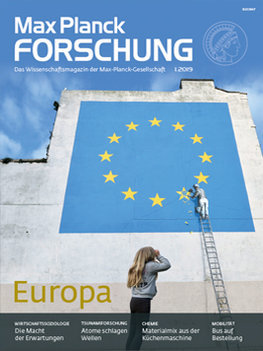(Source: MPI for European Legal History)
The fourth annual conference of
the Research Field ‘Legal History of the European Union’ to be held at the
Frankfurt Max Planck Institute on 9 and 10 June 2020, will focus on the
relationship between law and policy in European integration from the 1960s to
the 1990s.
From its beginnings, European
integration involved legal solutions to very concrete policy issues. Since the
1960s, the European Economic Community (EEC) developed policies and set legal
rules, for example on agriculture, competition, trade and the internal market.
New policies, including fisheries, regional, social, environmental and cultural
issues followed in the 1970s and 1980s, while other policies such as transport
did not move forward. Policy and rule making intensified and changed further in
the 1990s, in the context of Economic and Monetary Union.
European policy making involved
the build-up of a growing body of European law on a wide range of
policy-relevant issues. This so-called acquis communautaire deeply influenced
the law and policies of the member states. At the same time, political
scientists and lawyers have highlighted the weakness of actual implementation
of EU law. In the face of this contradictory evidence – between formal strength
and informal weakness – this conference will take a closer look at how the
relationship between law and policy in European integration developed over
time. This relationship goes both ways, and raises various questions.
First, how did European law shape
European policy making? How did the various Treaty bases and decision making
rules and ECJ judgements enable or limit the development of various policies?
How did legal doctrines and principles shape the issues of EC/EU law making and
the legal instruments chosen? What was the role of lawyers, legal scholarship
and expertise in policymaking? How did advocates or opponents of certain
policies use the law to influence policy?
Secondly, how did European policy
shape European law – through legislation and court cases? How did changing
visions of effective policy making, for instance, economic instruments, change
the shape of European legislation? How did transfers of policy knowledge and
policy principles from international organisations and (member) states change
European law?
This call invites contributions
that seek to help us better understand the link between European law and policy
in a historical perspective. All contributions should at least address one policy
area, and should relate to at least one of the questions raised above, making
explicit which part of the relation between law and policy (and which direction
of this relation) they are most interested in. Topics may include issues of
- Policy making, legal bases and
law making
- Policy implementation and the
role of law therein
- Policy relevant jurisdiction –
ECJ and national courts
- Legal doctrines and policy
principles
- Legal expertise and policy
expertise
- Transfer of legal and policy
knowledge
- Policy advocacy and opposition
in legislation and in the courts
The objective of the conference
is to enhance our understanding of what integration through law means with a
view to European policies. By bringing together case studies from a range of policy
areas, we will be able to (1) flag up the varying roles of different actors
involved, (2) compare the relations between policy and law across policy areas
old and new, and (3) assess change over time, including potential path
dependencies. We will thus get a better understanding of why and how European
policy, which increasingly influences citizens’ lives, has come to address
problems the way it does.
We welcome proposals for
contributions of not more than 150 words by 1st December 2019. Please email
your proposal and a short CV (100 words) to jmeyer@rg.mpg.de.
Stefan Vogenauer & Jan-Henrik
Meyer
Max Planck Institute for European
Legal History
Hansaallee 41
60323 Frankfurt am Main
More info here


No comments:
Post a Comment